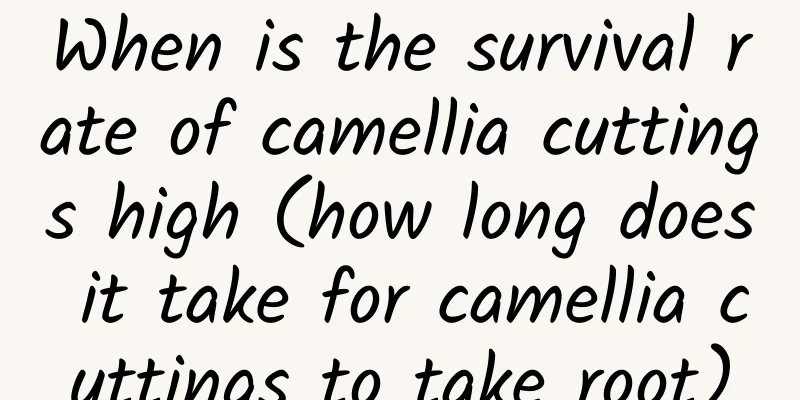Mint planting methods and precautions

|
Mint , also known as mint or night-scented garlic, is a perennial herb belonging to the genus Mint in the family Lamiaceae. This plant exudes a fresh and cool aroma. It not only has significant economic value, but also has a wide range of medicinal effects. Let’s learn about the planting methods and precautions of mint. 1. Environmental adaptability Mint is a highly adaptable plant that prefers a sunny environment and has certain requirements for soil fertility. The ideal soil pH is between 6.5 and 7.5, with sandy loam being preferred. 2. Land preparation and fertilization When choosing land for growing mint, you should consider conditions such as fertile soil, flat terrain, convenient irrigation and drainage, and sufficient sunlight. Before sowing, the land needs to be deeply plowed and about 2,500 kg of mature organic fertilizer , such as compost or soil conditioner, should be applied per mu as base fertilizer. The land should be leveled into ridges 1.5 meters wide and 15 centimeters high, and drainage ditches 30 to 40 centimeters wide should be dug. 3. Seedling management Mint seedling replacement work usually starts in early April. When the mint seedlings grow to about ten centimeters in height, thin them out, keeping the plants about 15 centimeters apart to ensure that each mint plant has enough space to grow. 4. Water and fertilizer management In the dry season, mint should be irrigated in time, and in the rainy season, attention should be paid to drainage. Mint needs to be fertilized four times a year: the first time is in February when the mint starts to grow; the second time is when the seedlings are about 15 cm tall; the third time is after the first harvest of mint; the fourth time is in early September, when the mint seedlings are about 30 cm tall. Appropriate amount of fertilizer should be applied per acre. When applying fertilizer, in addition to sufficient nitrogen fertilizer, an appropriate amount of phosphorus and potassium fertilizer is also required. 5. Harvest Mint is usually harvested twice a year, the first harvest in June or July and the second in early October. The best time to pick the mint is between noon and 2 pm to ensure the aroma and quality of the mint. The above are the planting methods and precautions for mint. You can formulate a suitable planting plan based on the local environment and choose suitable land for planting.
|
<<: Key points of carrot cultivation technology
>>: Planting process and cultivation technology of Isatis indigotica
Recommend
How to mix beer with green radish
1. How to mix When using beer to water the green ...
How to cultivate jade tree
1. Potting soil When growing, it is best to use p...
How many years does it take for a Meizao cherry tree to bear fruit?
Introduction to Zhongmei Early Cherry Mei Zao che...
What fertilizer should be applied to grape seedlings in the first year (what fertilizer should be used to make newly planted grape seedlings grow faster)
Grapes are woody vines with spherical or oval fru...
How often should mountain roses be watered?
How often should mountain roses be watered? Mount...
Planting and management of netted melon
1. Planting time Netted melon can be cultivated i...
How to grow Agapanthus
1. Soil During breeding, the soil should have goo...
Key points for aquaculture management in May
As the temperature gradually rises, summer has qu...
Propagation of Daxuesu - Repotting and Dividing Seedlings
Steps for repotting Daxuesu Remove the snow plant...
How to grow sugarcane?
There are two main varieties of sugarcane on the ...
What is the difference between Duheng and Asarum
1. Leaves The leaves of Duheng are heart-shaped o...
Muskmelon seedling raising method and time
Muskmelon is a very popular fruit with a sweet ta...
How to breed Rhododendron pubescens
Reproduction object If you want to propagate Rhod...
How to propagate perfume grass
Cuttings The propagation of fragrant grass is gen...
How to make chestnuts sprout quickly
Chestnut germination environment Chestnut itself ...









